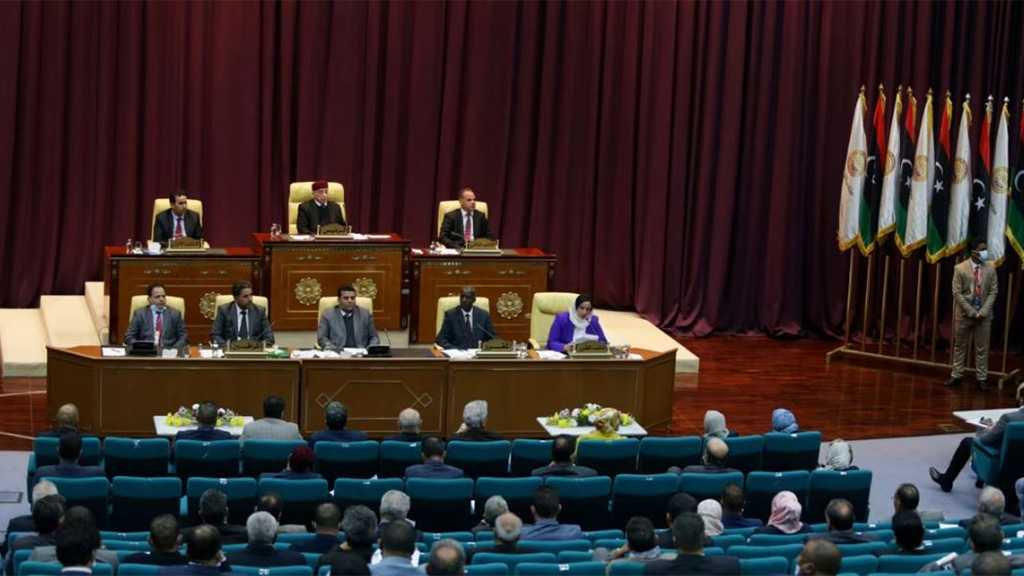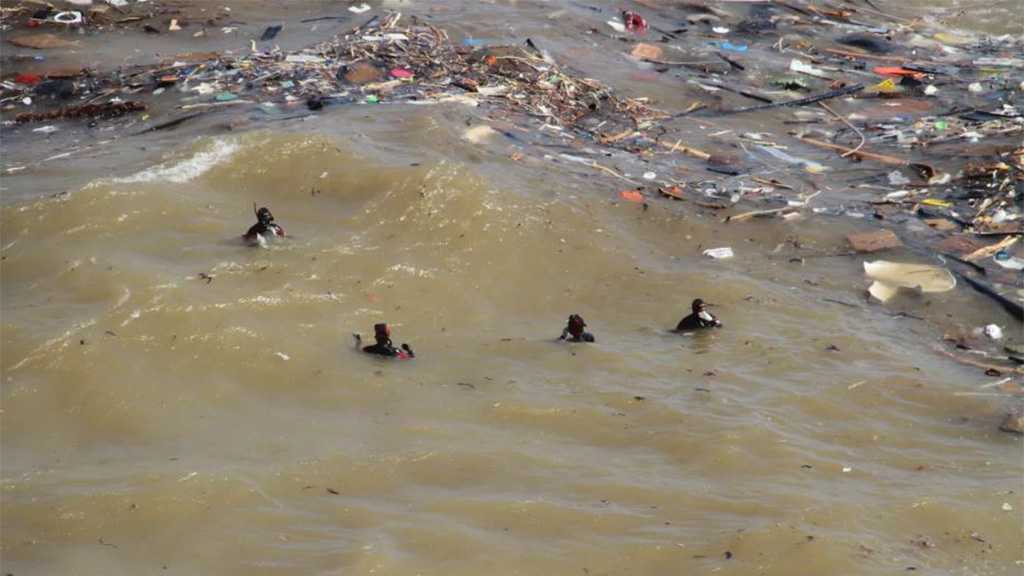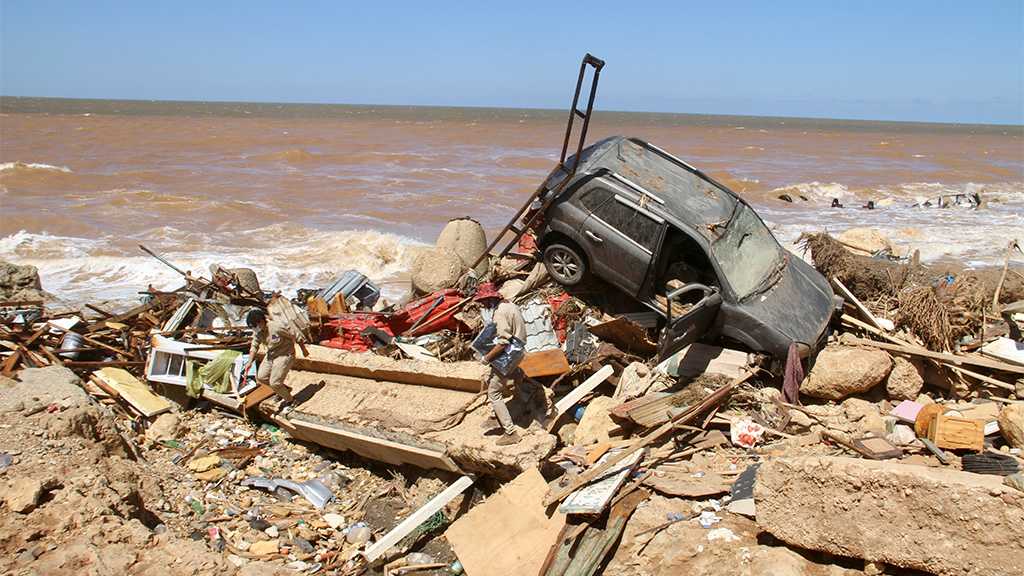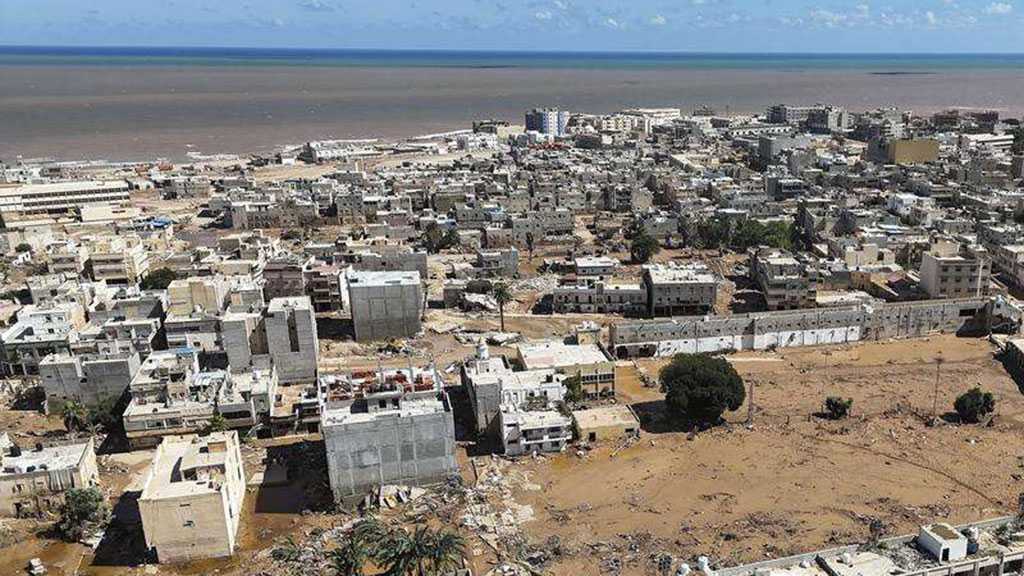Libyan Guards Repel Assault on Oil Field
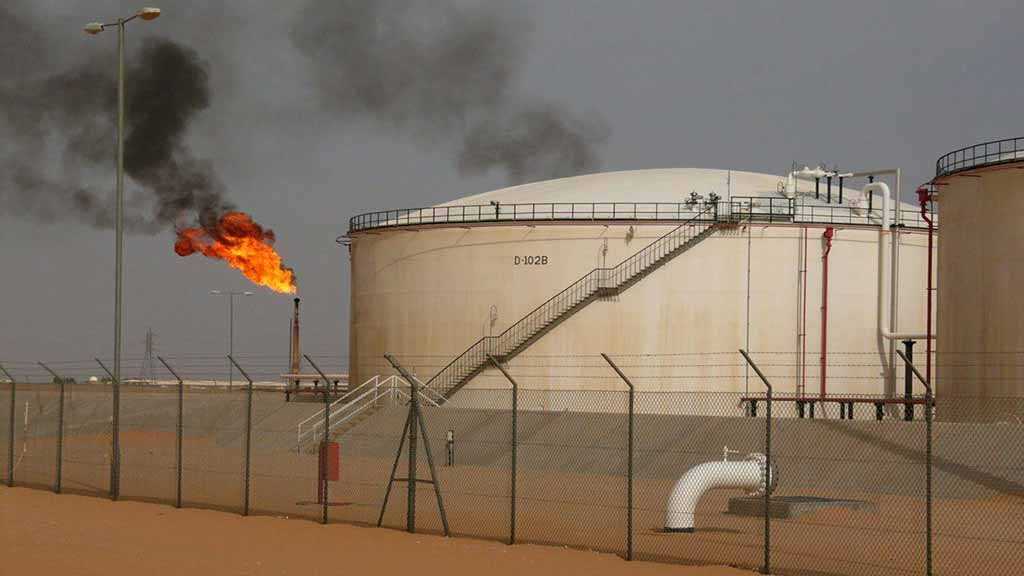
By Staff, Agencies
An armed group attacked Libya’s largest oil field but was repelled after clashes with its protection force Monday, while fighting escalated in eastern strongman Khalifa Haftar’s bid to capture the capital Tripoli.
The state oil company NOC said unknown gunmen fired a rocket propelled grenade at a control station of al-Sharara oil field, triggering fighting with its guard force, which eventually repelled the attackers, an oil engineer there told Reuters. There were no casualties among oil workers and production was unaffected, the NOC said in a statement.
Oil output in OPEC member Libya has been repeatedly disrupted by factional conflict and blockades since the 2011 uprising that toppled veteran dictator Moammar Gadhafi.
Haftar’s 3-week-old offensive to seize Tripoli, seat of Libya’s internationally recognized government, has sharpened a power struggle that has fractured Libya since Gadhafi’s fall.
The assault by the Haftar-led Libyan National Army, which is allied to a parallel government based in the eastern city of Benghazi, stalled on Tripoli’s stoutly defended southern outskirts last week.
But fighting intensified again Monday, with heavy shelling, small-arms fire and a warplane all heard in the center of Tripoli coming from southern districts, residents said. No more details were immediately available.
The LNA carried out an air raid overnight on at least one target south of Tripoli, residents said, though it was less intense than one Saturday night. The battle for Tripoli has killed 345 people, 22 of them civilians, a World Health Organization official said Monday.
A Tripoli hospital was evacuated after shelling shattered some windows, the official added.
The affiliation of the gunmen who targeted al-Sharara was unclear. The oil field is in a southwestern region held by forces loyal to Haftar. His forces have swept westward since last year are now concentrated in the northwest to try to take Tripoli.
State guards and local tribesmen shut down al-Sharara in December to press financial demands before allowing production to reopen in March. The field, operated by the National Oil Corporation and foreign partners, has been pumping crude only intermittently due to blockades mostly by armed groups and other incidents.
UN officials say Haftar is backed militarily by the United Arab Emirates and Egypt, which want to build him up to help fight and neutralize Islamist militants in the region. His opponents see him as a budding new autocrat in Gadhafi’s mold.
But divisions among European and Gulf nations over how to deal with Haftar have scuppered UN efforts to broker a cease-fire between the main armed factions to prepare Libya for elections to help reunify the country. France and the United States have been accused by Prime Minister Fayez al-Sarraj’s government in Tripoli of playing both sides since Haftar launched his offensive.
Paris has backed Haftar’s efforts to curb radical terrorists while at the same time formally supporting Sarraj’s UN-recognized government.
Sarraj is backed emphatically by Italy, the former colonial power which has oil assets in Libya, and Turkey, two among the few countries that have kept their embassies open in Tripoli. Qatar, a Gulf rival of the UAE, also supports Serraj.
UN Libya peace envoy Ghassan Salame warned nations tempted to continue supporting Haftar that he was no democrat and his political agenda was not favored by most Libyans.
“He is no Abraham Lincoln, he is no big democrat, but he has qualities and wants to unify the country,” Salame told France Inter radio, mentioning the revered 19th-century American president who steered the nation through its Civil War, preserving the union and abolishing slavery.
Salame said his peacemaking efforts were suffering from deep divisions within the UN Security Council that led to a British draft resolution on stopping the fighting over Tripoli being blocked last week by Russia and the United States.
France was criticized by analysts and diplomats earlier this month for holding up a European Union communique that it deemed to be too one-sided against Haftar. The statement was eventually approved after additions and amendments to the text, although it remained critical of Haftar’s advance on Tripoli.

